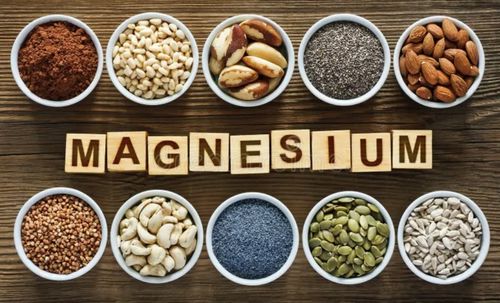Magnesium often plays a quiet but powerful role in our body from helping us to relax for sleep, to assisting muscle relaxation and my favourite easing anxiety.
What Is Magnesium, and Why Do You Need It?
Magnesium is a mineral found in the earth, sea, plants, animals, and humans. In fact, about 60% of the magnesium in your body is found in your bones, while the rest resides in muscles, soft tissues, and fluids.
Benefits of Magnesium,
- Energy creation
- Protein formation
- Muscle movements
- Nervous system regulation
- Blood sugar control
- Blood pressure regulation
- Reduction of Anxiety levels
Unfortunately with our modern diets and the soils are lacking this mineral.
Top Health Benefits of Magnesium
1. Supports Muscle Function and Recovery
Magnesium helps muscles contract and relax properly. If you’ve ever had a muscle cramp or twitch, a lack of magnesium could be to blame. Athletes and physically active individuals may benefit from magnesium supplements to reduce soreness and speed up recovery.
2. Reduces Stress and Promotes Better Sleep
Magnesium plays a key role in regulating the nervous system. It supports the production of GABA, a neurotransmitter that promotes relaxation. Many people find that magnesium helps ease anxiety, lower cortisol levels, and improve sleep quality.
3. Boosts Heart Health
Magnesium helps maintain a steady heartbeat and supports healthy blood pressure levels. It’s also been linked to a lower risk of stroke and heart disease. Think of it as a protector of your cardiovascular system.
4. Regulates Blood Sugar Levels
Magnesium supports insulin sensitivity, which helps regulate blood sugar. Low magnesium levels are often found in people with type 2 diabetes and metabolic syndrome. Increasing magnesium intake can improve blood sugar control.
5. Improves Bone Health
While calcium gets all the credit for bone strength, magnesium is a key player too. It helps with calcium absorption and plays a role in bone formation. Adequate magnesium may help prevent osteoporosis and keep bones strong as you age.
6. Fights Inflammation
Chronic inflammation is at the root of many diseases, from arthritis to Alzheimer’s. Magnesium has anti-inflammatory properties and may help lower markers of inflammation like CRP (C-reactive protein).
Best Magnesium Food Sources
You can get magnesium through diet with foods like:
- Dark leafy greens (spinach, kale)
- Nuts and seeds (almonds, pumpkin seeds)
- Legumes (black beans, chickpeas)
- Whole grains (brown rice, oats)
- Avocados
- Dark chocolate
Should You Consider a Magnesium Supplement?
If you’re not getting enough through food, supplements can help. Common types include:
- Magnesium citrate – good for digestion
- Magnesium glycinate – calming, good for sleep
- Magnesium oxide – high in magnesium, but less bioavailable
Please consult with a healthcare provider before starting a supplement, especially if you have kidney issues or take medications.
Magnesium’s impact on your health is remarkable. From reducing stress and anxiety levels to supporting heart and bone health, getting enough magnesium is one of the simplest and most effective ways to support your overall well-being.
Charz 2025



